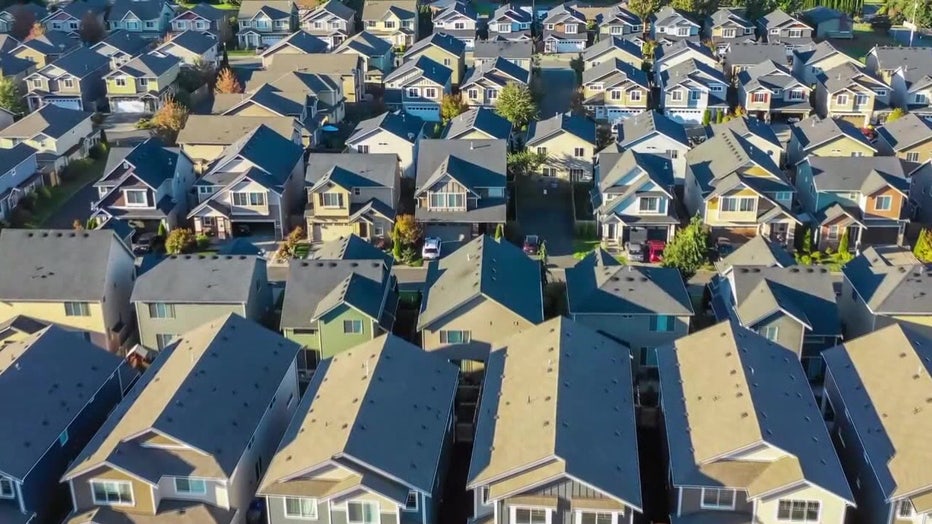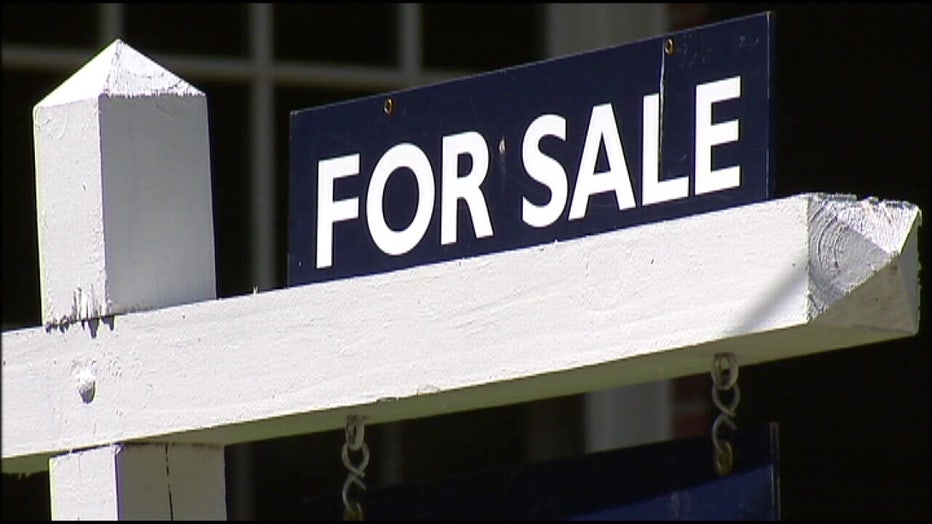Economists monitor for troubles with homeowners, foreclosures as pandemic-era help expires

Economists closely watch foreclosures as help expires
Economists are watching for trouble with homeowners and foreclosures as pandemic-era help expires
TAMPA, Fla. - Mortgage rates had their largest weekly drop Friday since 1981, but concerns remain over whether the economy is headed toward a recession.
Interest rates are still high as Americans deal with crushing inflation and a cooling housing market. Economists are watching for trouble with homeowners and foreclosures as pandemic-era help expires.

The hot housing market kept foreclosures at bay.
READ: Hillsborough commissioners agree to provide affordable housing option in Riverview
"Homeowners have a lot of equity. Price gains have been strong in nearly every area of the country, especially over the last two years," said Jessica Lautz, the vice president of demographics and behavioral insights at the National Association of Realtors. "The typical owner who has owned their property for a decade has about $210,000 in housing equity. So, there's really no expectation that we would be facing a wave of distressed sales moving forward."
With the housing demand now cooling, economists and realtors are paying attention.

Will the housing downturn hit Tampa Bay?
Home prices are cooling off and a new report predicts a housing downturn through the end of next year. But Tampa Bay has seen some record-highs in the last two years, so the question is: to what extent would a downturn in the market be felt in this area?
"We actually ask realtors on a monthly basis in our realtors confidence index if they've actually worked with a distressed seller in the last month," said Lautz. "Right now, it's been bouncing around 1 to 2%, even dropping to 0%. If we look back at this data back in 2009, it was actually about half of realtors were working with a distressed seller back in 2009."
It’s a far cry from the Great Recession era of foreclosures.
MORE: St. Pete to require landlords to give tenants notice in order to raise rent
"I think, honestly, we're all a little scarred from the Great Recession and there is a hangover effect. But this is not the economic environment," said Lautz. "I would definitely avoid making those comparisons to that boom-and-bust period, because we are in a very, very different lending environment, and we continue to see under building, unfortunately."
Yet even government agencies are preparing for a possible increase. This week a new Federal Housing Administration report said it has enough money in reserves to help homeowners in a potential recession.

FHA loans often help first time homebuyers, families of color and rural families. During the pandemic over two million FHA borrowers couldn’t pay.
"There was relief during the pandemic, and those families who did seek relief are probably still actually in a positive equity environment," said Lautz.
FHA said 340,000 delinquent homeowners are left at the end of fiscal year 2022, many of them late on their loans before COVID or just didn't get assistance.
PREVIOUS: These housing markets are seeing the largest drop in prices since the pandemic peak
University of South Florida economist Lei Wedge said the pandemic pause on foreclosures created a backlog, and it may take a couple of years for it to fully hit the market. Tough lending standards will continue to hold things in check.
"It's really, really difficult to obtain a mortgage. You have to have a high credit score. You have to have money in reserves, have your down payment together, have a high income to be able to qualify for a mortgage. So there's just really not a concern," said Lautz. "We continue to see home price growth moving forward. So even in an environment where sales have contracted, where there's fewer buyers who can qualify, we still expect that home price growth will continue to happen, and we're seeing it happen."
USF economists said FHA loans are a small percentage of all mortgages, and a big number of possible foreclosures were likely reversed because of rising home prices. So even though the housing market is slowing, economists and real estate experts said they don’t see a big rise in foreclosures in the immediate future.

